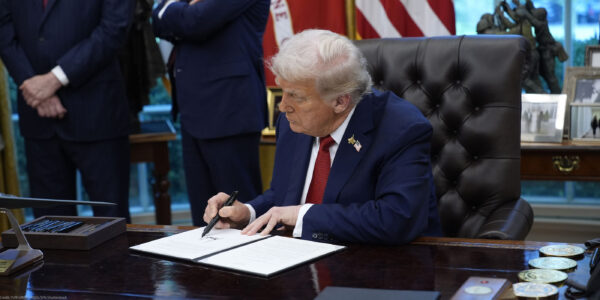Originally posted by the ACLU of Northern California.
Today, the ACLU of Northern California went to court in two separate cases with the same goal: shedding light on the government's use of controversial and arguably unconstitutional surveillance techniques. In the first, we filed a motion to unseal secret court papers authorizing the government to use a device called a "stingray" to track an individual's location. In the second, we filed a new lawsuit to force federal prosecutors to disclose their policies, practices and procedures for tracking cell phones.
Last week, the New York Times reported on "the rise of a secret docket on a scale that has no parallels in American history." This docket consists of government requests to engage in various novel forms of electronic surveillance - including tracking people's movements through their cell phones. According to a federal judge profiled in the article, there were more than 30,000 sealed electronic surveillance orders issued in one recent year alone. And in many cases, these orders remain sealed indefinitely. Although recent efforts to demand government records by the ACLU and representatives in Congress have begun to shed light on the massive scale of the government's electronic surveillance efforts, the unfortunate truth is that the public still remains largely in the dark.
If that sounds strange to you, it should. Justice is not supposed to be administered behind closed doors. While a criminal investigation is on-going, it may make sense to extend some secrecy to search warrants or tracking orders that the government has obtained, so as not to jeopardize the investigation. But once the criminal investigation is over, continued secrecy serves no purpose other than to shield from public view the workings of government.
A sealed judicial docket raises general concerns about transparency and accountability. But these concerns are even more troubling in the context of location tracking. Location information reveals a wealth of detailed personal information - about trips to the psychiatrist, abortion clinic, mosque, or anarchist meeting. The courts are divided on the legal standard the government must satisfy to obtain cell-site location information. And Congress and state legislatures are considering legislation that would require law enforcement to obtain warrants based on probable cause to obtain location information. We, as a society, are engaged in a vigorous debate about location information, and the protections that should apply before the government can use it to track us. But we cannot engage in a meaningful or informed debate if we don't even know what the government is up to.
The ACLU-NC's two new initiatives are designed to combat exactly this secrecy. In the first, we have filed a motion to unseal the orders in the case of Daniel Rigmaiden. In 2008, the government applied under seal for an order to authorize the use of a little known device called a "stingray," to track his location. A stingray is able to pinpoint the location of a target cellphone by mimicking a cell tower and sending and receiving signals to and from the target. The federal court granted the order under seal, and the government's application and the court order have remained under seal ever since.
Last fall, the Wall Street Journal broke the story of the stingray and Mr. Rigmaiden, who is now being criminally prosecuted in federal court in Arizona. But even though his case promises to yield the first court opinion on the Fourth Amendment implications of using a stingray to track someone's location, and even though the investigation in Mr. Rigmaiden's case is long over, the order authorizing the government to use the stingray device remains under seal and unavailable to the public.
Our motion asks the court to unseal the order so the public can view it. Unsealing the orders would be an important victory for transparency, but the case also highlights a much larger problem. It cannot be that the doors to the courthouse open only when lawyers specifically ask for access.
Because the entire judicial docket is often sealed when it comes to surveillance orders, the public is prevented from learning anything about the location tracking technology being used by the government and the legal standard that courts are applying in authorizing the use of evolving technology. Worse yet, the sealed docket means that the public is kept completely in the dark. If we don't even know about the existence of surveillance orders, we can't ask for access to them.
For this reason, the ACLU-NC, along with the San Francisco Bay Guardian, also filed a lawsuit today under the Freedom of Information Act against the Department of Justice for information about all of its requests, subpoenas, and applications for court orders or warrants about location tracking information. This follows-up on an earlier FOIA lawsuit brought by the ACLU and the Electronic Frontier Foundation seeking information about location tracking through cellphones. We know from Mr. Rigmaiden's case that the government is now using different forms of location tracking technology. When it comes to privacy and intrusive new forms of government surveillance, we have a right to know exactly what the government is up to.
Learn more about government surveillance: Sign up for breaking news alerts, follow us on Twitter, and like us on Facebook.


